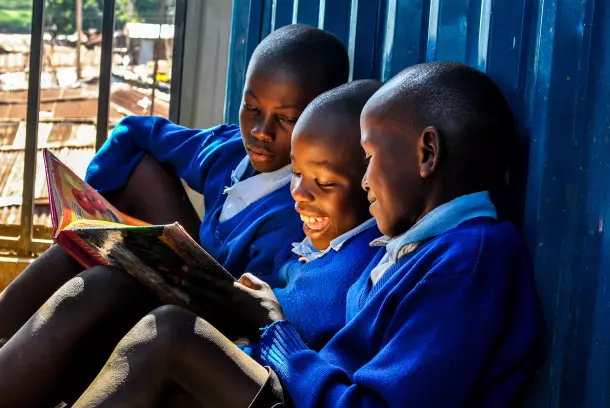Africa’s Path to Global Power Hinges on Urgent Investment in Schools: Policy Experts, Education Leaders - ENA English
Africa’s Path to Global Power Hinges on Urgent Investment in Schools: Policy Experts, Education Leaders

Addis Ababa, October 10, 2025 (ENA) -- Africa’s ambition to emerge as a global powerhouse will remain out of reach unless governments and institutions make education the foundation of their development agendas.
This was the resounding message from education leaders, union representatives, and policy experts in an exclusive interview with Pulse of Africa (POA), where they underscored the urgent need for increased funding, infrastructure development, and digital transformation across the continent’s education systems.
“Education is not taken as the pillar it should be. Funding is very minimal, yet the future of our generation is based on quality education. Without proper classrooms and proper facilities, we cannot transform our future,” said Gorata Bagopi, Vice President for Gender & Women’s Rights at the Botswana Teachers Union.
The push for investment is not only a continental priority but also part of the global effort to meet the United Nations Sustainable Development Goal (SDG) #4: Ensuring Inclusive, Equitable, and Quality Education and Promoting Lifelong Learning Opportunities for All. Leaders warned that without urgent action, Africa risks falling behind in achieving this global commitment by 2030.
Speakers emphasized that Africa must rely on its own capacity to reform education and drive transformation, in line with the African Union’s Agenda 2063: The Africa We Want.
“Africa can solve its own problems. We have African governments, African experts, and African teachers – we must bring them together. Only Africa will deliver the best education system for Africa,” said Dr. Young Piero, Director of Parliament at the African Union Simulation.
This sentiment reflects a growing belief that Africa’s success depends on its ability to shape policies, invest in education, and build contextually relevant systems
the world enters a new digital era, education leaders also highlighted the importance of equipping learners with digital skills to remain competitive. While global markets advance rapidly in Artificial Intelligence (AI) and digital platforms, many African schools still lack basic connectivity.
“How do we align ourselves with global trends, especially with the coming age of AI? This must be intentional under the AU, as part of how we move this continent forward,” said Henry Sinkala, General Secretary of the Basic Education Teachers Union of Zambia.
The African Union Commission is currently implementing the AU Digital Education Strategy, which aims to help member states digitalize schools, provide teacher training, and ensure learners develop “digital know-how” as part of the broader Agenda 2063 vision.
“We are supporting AU member states on digital education. The goal is to ensure that both teachers and students are fully digitalized, with access to digital learning and digital literacy,” confirmed Dr. Caseley Olabode, Senior Education Expert at the African Union.
The African Union’s Agenda 2063 envisions a prosperous, inclusive, and globally competitive continent. Education lies at the heart of this vision. Yet challenges remain: Africa faces a shortfall of 17 million teachers by 2030, while only 20 percent of schools in sub-Saharan Africa currently have internet access, and Millions of learners still study under trees or in unsafe classrooms.
By aligning with both Agenda 2063 and SDG #4, African leaders argue that education investment will not only shape the continent’s future but also contribute to global progress toward inclusive and equitable learning.
The experts highlighted that education leaders are united in their message: Africa’s future as a global powerhouse depends on immediate, sustained, and transformative investment in education.
The continent’s rise will not be defined by its natural resources alone but by the strength of its schools, the vision of its leaders, and the readiness of its youth to compete in a rapidly changing world.